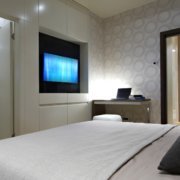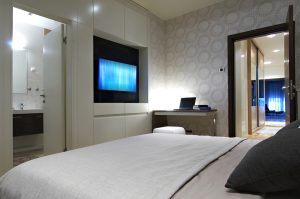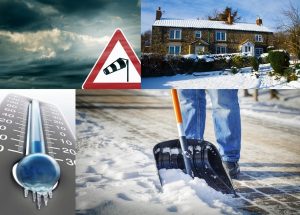 The death of any child is always extremely tragic, and the case of a six-year-old who lost his life in a house fire last year has again highlighted the fatal consequences fire can have once it takes hold of a property. Riley Jake Jackson from Derbyshire died from “fire-related burns and carbon monoxide toxicity” after a bedside lamp had fallen over and the heat from the bulb caused the lampshade to ignite.
The death of any child is always extremely tragic, and the case of a six-year-old who lost his life in a house fire last year has again highlighted the fatal consequences fire can have once it takes hold of a property. Riley Jake Jackson from Derbyshire died from “fire-related burns and carbon monoxide toxicity” after a bedside lamp had fallen over and the heat from the bulb caused the lampshade to ignite.
The bulb within the lamp was halogen and the recent inquest into Riley’s death has heightened attention on the potential danger of halogen light bulbs within homes. When considering holiday let fire safety, take into account the risks posed by halogen bulbs.
The difference between halogen and LEDs
The fundamental safety difference between halogen bulbs and LEDs is the potential temperatures the halogen bulbs can reach when on for a period of time. A halogen bulb can soar to temperatures of 200°c, whilst LEDs are usually less than half of this. The former can therefore quickly become a fire risk if it comes into contact with materials such as duvets, lampshades and curtains.
Weren’t halogen bulbs banned?
Halogen bulbs were banned from sale across the European Union in September 2018 on environmental, rather than safety, grounds. However, retailers are allowed to sell remaining stocks and there are no restrictions on them being used.
The benefits of using LEDs in your holiday home
- Longer life – LED lights are proven to have a greater lifespan than their incandescent or halogen counterparts. It is estimated that an LED light will last for 11 years of continuous use. That’s 20 years with your light on for eight hours a day, and a lot less spent on new bulbs every year.
- Save on your bills – LED lighting operates at around 80-90% efficiency, compared to the 20% efficiency of its traditional counterpart.
- Eco-friendly – LED lights contain no toxic materials and, for that reason, are usually recyclable. Given the longer lifespan, one LED light can save the materials and production of 25 traditional bulbs. In the average home that adds up to in the region of 250-350 bulbs!
General Lamp Safety
- Always use a lampshade on lamps across your holiday home
- Place lamps on a stable surface in all rooms
- Ensure wires and cables are neatly arranged and not stretched across the floor
- Consider where lamps are in children’s bedrooms and whether they are near to combustible materials, such as bed linen, curtains or other potentially flammable materials
- Always keep the immediate area around a lamp clear
- Consider switching to cooler LED bulbs
Boshers offer specialist holiday home insurance to owners across the UK. Need an insurance quote for your holiday let? Give us a call on 01237 429444.


 Although it may seem like a more recent phenomenon, Airbnb was founded a whole decade ago. It has had a massive impact on the holiday home and rental industries in almost 200 countries across the globe.
Although it may seem like a more recent phenomenon, Airbnb was founded a whole decade ago. It has had a massive impact on the holiday home and rental industries in almost 200 countries across the globe.
 With spring and summer ahead, it will be natural for
With spring and summer ahead, it will be natural for 
 It’s the small touches that make a big difference when it comes to high quality accommodation. Guests notice the small touches; the fresh flowers, the neatly made bed, the
It’s the small touches that make a big difference when it comes to high quality accommodation. Guests notice the small touches; the fresh flowers, the neatly made bed, the 
 These essential
These essential 





